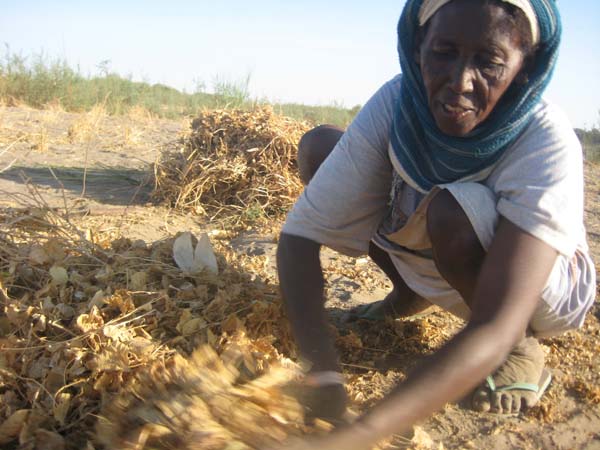
I had been in Sudan one week when I set off up north to see just how widespread neglect in Sudan really is. One of the reasons behind the problems in Darfur, of course, is long-standing marginalization of the area. Darfurians are mostly black Africans and the government is dominated by Arabs.That is often portrayed as part of the reason for their neglect. Other ethic groups - Christians and animists in the south and the Beja in the east - have also complained of marginalization. But nobody ever hears about the Arabs in the north. I guess the assumption is that they are in good hands, since many government ministers come from the far north. I went to see just how true that assumption is.
The bus ride up there was interesting, to say the least. We (me and a friend from Canada who is working for the UN) were heading to a village called Al-Taitti, about five hours north of the capital Khartoum, in the Nubian desert.
We arrived at the "bus stop" (an empty road) at 3:30am because our eager helper wanted to be sure we got good seats. We waited a good 15 minutes for the bus to even arrive. Slowly people started trickling in, stacking their masses of baggage on one side of the road, and performing their morning prayer on the other.
When we finally boarded, I was looking forward to a good sleep. Instead, I got a myriad of entertainment programs on the TV screen, blasted at such volume that any thoughts of dozing disappeared. First was a Friday prayer sermon, conducted by what seemed to be a 7-year-old boy, screeching at the top of his lungs. Then came Sudanese music videos, which consisted of men and women chasing each other around in a field with pots and pans. And finally, when Shakira's voice came through the speakers, I knew this would be no ordinary bus ride.
The ride itself was smooth though, as the road from Khartoum to the capital of Northern State, Dongola, has recently been paved (There is a big dam being built in the north that is to supply electricity to the whole country, and development has accompanied this construction). A journey that used to take five days now takes five hours. We even got served breakfast, albeit out of a Styrofoam box. I had no idea what the deep-fried meat was, but I ate it!
When we finally arrived, I forgot all my anger over having to wake up early and putting up with all the noise during the trip. We stepped off the bus, and marveled at the site. But for the paved road and a dilapidated structure selling soft drinks, there was nothing but sand. I did a 360-degree turn - sand EVERYWHERE! The bus dropped us off, seemingly on the edge of the earth, and kept going with the rest of the passengers. We continued to the village, up and down the bumpy gravel path, by truck. What we found when we got there was even more astounding.
Never have I felt so isolated from the world as I did when I first entered Taitti. I have been to small African villages, but this was something else. When I visited eastern Chad, for example, the villages were much poorer, but there was a UN presence, big markets, life! In Taitti, there are no TVs, no radios, no newspapers. I had to go to a specific spot by the mosque to get cell phone reception. The place is just so tranquil - they have no electricity and few vehicles - that you feel totally disconnected from the world.
The people of Taitti live and suffer quietly - few hear their cries.





